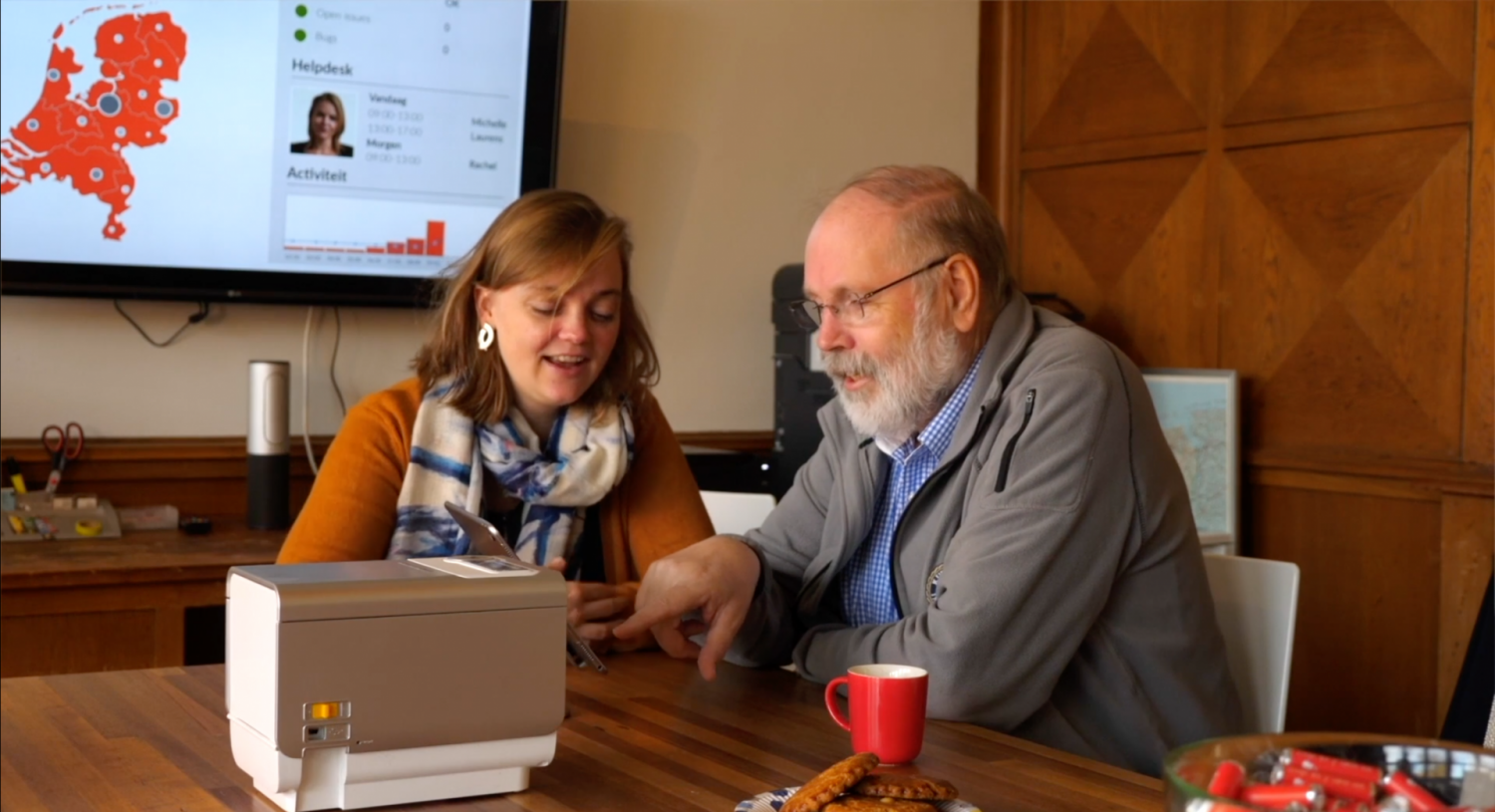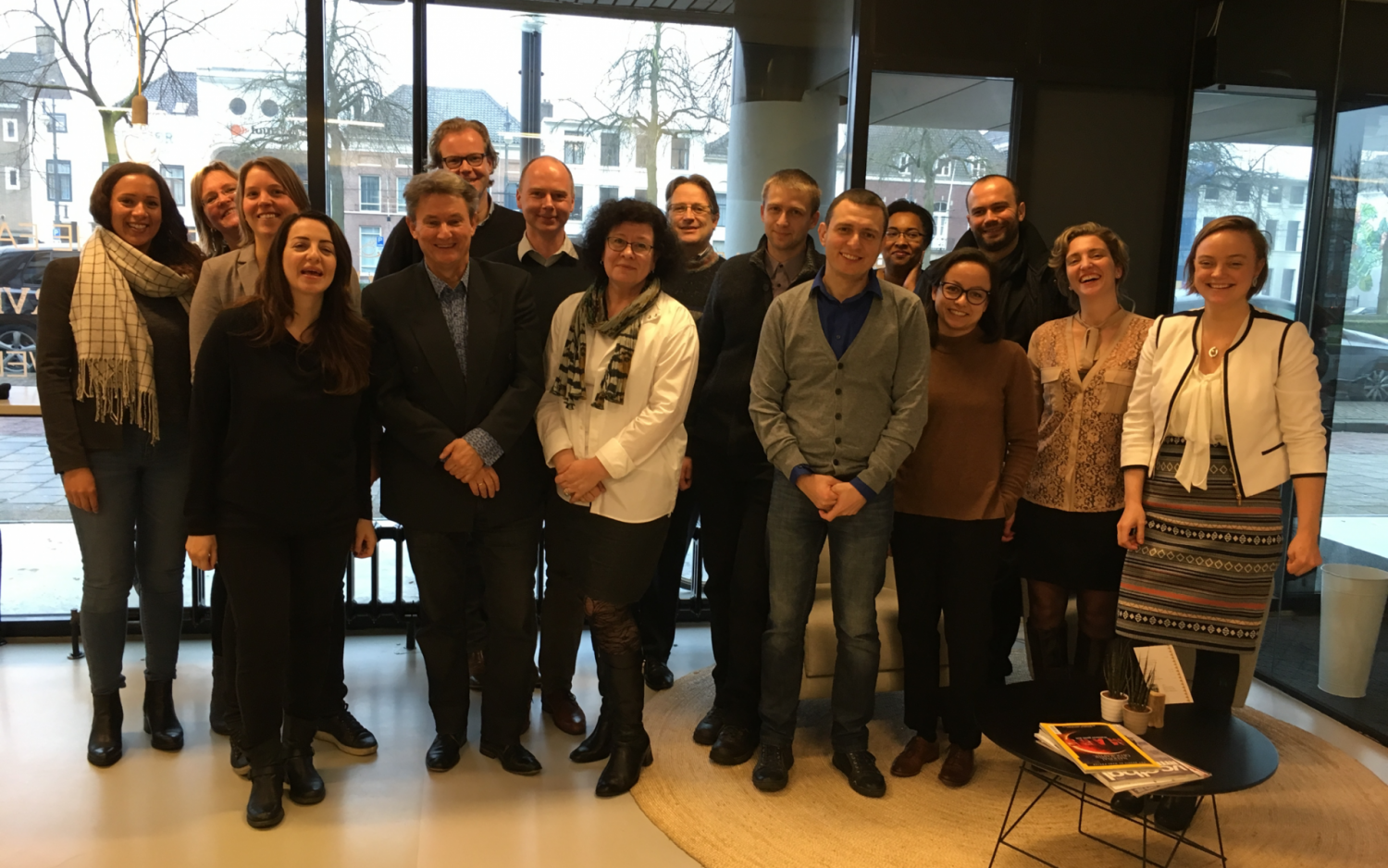Project of the month: MedGUIDE digital platform for caregivers, health professionals and patients
This July, we present MedGUIDE, a project developing a digital platform that brings together informal caregivers, medical professionals, pharmacists and the end users.
The platform’s aim is to gather information and provide a human-centred view of the needs and status of the elderly patients through smart technology and a social networking approach to healthcare.
According to the MedGUIDE consortium, many seniors suffering from dementia face challenges with the safe and healthy use of medication. This is often more of an issue in early dementia, when patients are still rather independent than in later stages of the disease when carers and nurses take over the responsibility of administering medication regimes adequately.
How does it work?
MedGUIDE has created an ecosystem of smart medication dispensers, home sensors and digital platforms that support the specific needs of the platform users through smart pill boxes and social networking. Machine learning translates reports, daily activities and observations into relevant alerts on medication adherence and potentially harmful side-effects both through self-reporting and sensor data collection in the home of the seniors with dementia.

Figure: The patient is asked to self-report on mood and physical wellbeing.
In result, MedGUIDE is able to provide insight in the actual needs of elders with dementia (based on the combined input from the patient, the network of informal caregivers, and contextual data from IoT devices), the patients’ actual medication use, side effects and adherence, as well as to provide support for improving the care and medication adherence through direct reminders and personalised road maps leveraging the network of informal caregivers.
End-Users highlight the feeling of safety
The consortium reports that the MedGUIDE platform has already been piloted in the Netherlands, Norway and Cyprus. A total of 34 end-users were involved in the final field trials. The senior participants appreciated that the platform helped them improving medication adherence, and that their caregivers could be notified in case of health deviations early on. Caregivers also stated that the platform increased their awareness on possible side-effects of polypharmacy and the importance of adhering to the medication plan. Furthermore, informal caregivers appreciated that the platform contributed to their feelings of safety and confidence during the care process.

Photo : End-user providing a self-report through MedGUIDE
Cooperating with other players and moving forward
The consortium succeeded very well in co-creating the MedGUIDE system with their end-users and in releasing an entirely working system, ready to be engineered prior to its commercialisation. It is also worth highlighting that MedGUIDE has liaised with seven projects at the EU level considered as significant and coherent with MedGUIDE’s main aims and addressing topics focusing on dementia and cognitive diseases to gain insight and refine their analysis of the needs on the market.
The Dutch partners of the consortium have recently started a national co-funded project with a project focused on performing a feasibility study of the polypharmacy and self-report MedGUIDE services with a broader group of end-users at national level, and to carry out a correlated validation study in close collaboration with the largest Dutch pharmacy chain.
As the MedGUIDE project coordinator Mr. Martijn Vastenburg puts: ‘through the MedGUIDE services, the pharmacists aim to better identify what patients need extra attention, and to better adjust the personal medication plans to changing needs and circumstances. When successful, the MedGUIDE polypharmacy and self-report services can be integrated in the regular medication review process of the pharmacists.’

